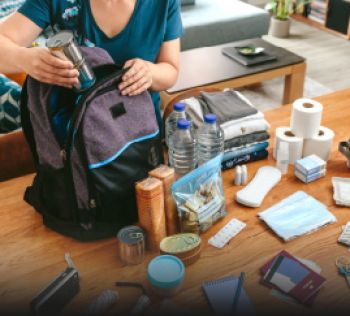Food Safety
Frequently asked food safety questions
How can I tell if a food business is licensed?
It is a requirement that all food businesses display a copy of their food licence in a place visible to the public.
What if I believe a food business is operating without a licence?
If you believe a business is operating without a licence, contact Council and provide as much information as possible, including the trading name, address, types of foods sold and the day or time they were operating.
Council investigates any unlicensed food businesses to ensure they apply for the appropriate licence if required. If a food business operates without a licence, they can increase the risk of food borne illness through improper food handling practices. All licensed food businesses are regularly inspected by an Environmental Health Officer to ensure their food handling practices are at an acceptable standard.
Council may take enforcement action where a business is found to be operating unlicensed.
What do I do if I have seen a food business handling food unsafely?
Council investigates incidences of unsafe handling practices and conducts regular inspections of food businesses to ensure food is handled in a safe manner.
Contact Council if you would like to make a complaint. When making a complaint, provide as much information as possible, including the trading name, address, what you observed and the day or time you witnessed the unsafe practices.
What should I do if I suspect I have food poisoning?
If you are ill, you should seek medical assistance from your doctor.
Queensland Health is the lead agency for investigating incidences of food poisoning outbreaks. Without a diagnosis from a doctor or a faecal or sputum sample, it can be difficult to ascertain if you have suffered from food poisoning.
Food poisoning can be acquired up to 72 hours or more prior to noticeable symptoms appearing. Therefore, it is important to provide Queensland Health with as much information as possible about any food you have eaten over the last few days.
Samples of any leftover food you have eaten will also assist in determining what type of food poisoning you have suffered from.
Are food handlers required to wear gloves?
The Food Safety Standards does not require food handlers to wear gloves when handling food. However, food handlers are required to take all necessary precautions to ensure food is adequately protected from contamination by limiting direct contact with food. Food handlers must also ensure they are washing their hands before, during and after food preparation.
Gloves can be an effective means for protecting food from contamination. However, gloves have their limitations and should be changed regularly. Wearing gloves should never be a substitute for washing your hands.
Can a food business supply doggy bags to customers?
The term “doggy bag” originates from the practice of people taking left-overs home from a restaurant for the family pet. Today, however, many customers will consume the food themselves later at home. There are no laws that prohibit food businesses from supplying customers with doggy bags. It is the restaurant’s choice whether to allow this practice within their business.
Food from doggy bags can be exposed to food safety hazards such as temperature abuse and inappropriate food handling by the customer. If a food business chooses to supply doggy bags to customers, they should consider taking the following precautions:
- have a set procedure for dealing with doggy bags and ensure all staff are instructed on this procedure.
- transfer the food into a new container suitable for food.
- have an instruction sticker or leaflet which explains suitable storage and reheating requirements for the food.
Can Council take action if the food I ordered was not cooked the way I like?
Council’s role is to ensure food businesses reduce the risk of unsafe or unsuitable food being sold. If the food has been prepared safely, Council does not take action against a business if the food is not appetizing, is burnt or not cooked to your satisfaction.
Community information sheets
Community information sheets
Food safety for residents (PDF 1.9 MB)
During an emergency or disaster event, food may become compromised in such a way that will render it unsuitable for consumption. Food that has come into contact with contaminated flood or storm water, or food that has not been refrigerated for a long period of time, can be a risk for you and your family if consumed. It is important that you take action to prevent your family from becoming ill. This information sheet provides advice on how you can minimise the risk of food contamination after a disaster.
Health advice on water (PDF 448.9 KB)
This information sheet provides advice on making sure your water is safe to use. In the aftermath of a disaster, the supply of drinking water, private water supplies, tanks, wells and bores may be contaminated or stopped all together.





